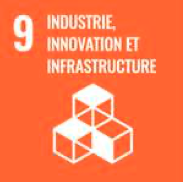Digital humanities
Find out more about digital humanities research at CNRS Humanities & Social Sciences and its laboratories.
Digital data is common in the social sciences and this is also increasingly becoming the case in the humanities which is where the digital humanities have an essential role to play. This field covers digitally enriched editions and reconstructions, the production of maps and networks, complex and multidimensional modelling, remote quantification and analysis, text mining and the mining of natively digital or non-digital corpora for example. CNRS Humanities & Social Sciences supports specialised teams and the Progedo and Huma-Num Very Large Research Facilities as well as many other teams with a strong involvement in the digital humanities through the training of researchers and engineers. There are still vast challenges ahead in the field. Digital humanities practices remain highly accessible but often require profound changes in researchers' habits. Digitising a collection of coins or sheet music or constructing an economics database are long-term projects and using the data collected requires researchers to be familiar with digital interfaces, standards and practices. Support and training for researchers and laboratories in this area requires intermediary services and facilities to be developed in conjunction with the Huma-Num IR* research infrastructure and also in partnership with the MSHs (Houses of Human Sciences) and CNRS Humanities & Social Sciences partners on the sites concerned.
The Huma-Num IR* research infrastructure is dedicated to digital research practices in the humanities and social sciences. Huma-Num provides a range of digital services and tools for research projects at all stages of the data lifecycle including secure storage, hosting, calculation, processing, collaborative work, scientific writing or archiving.
The Nakala data repository and the Isidore search engine enable research teams to maintain, disseminate and report on scientific data and productions in compliance with academic practices in the humanities and social sciences.
These services and tools are linked to a collective consultation process led by national and international research communities within the HN-Consortiums (HN for Humanités Numériques = Digital Humanities), the HN-Lab (an innovation and research centre) and various other partners, including the MSHs and the BnFDataLab.
Huma-Num IR*, with its Nakala data repository, is one of the Reference Centres in the national Recherche Data Gouv open science ecosystem. It is committed to constructing the European Open Science Cloud, and also represents France in the European research infrastructure consortium DARIAH (Digital Research Infrastructure for the Arts and Humanities).
The Huma-Num IR* research infrastructure has been awarded a 'star' by the French Ministry of Higher Education and Research and is managed by the CNRS along with Campus Condorcet and Aix-Marseille University.
https://www.inshs.cnrs.fr/fr/huma-num

Research centers and networks
CNRS Humanities & Social Sciences laboratories
- Centre d’analyses et de mathématiques sociales
- Centre d’Études et de Recherches Administratives, Politiques et Sociales (CERAPS)
- Centre de recherche critiques sur le droit (CERCRID)
- Centre Internet et Société (CIS)
- Centre pour les humanités numériques et l’histoire de la justice (CLAMOR)
- Dynamique du Langage (DDL)
- France Amériques Espagne Sociétés Pouvoirs Acteurs (FRAMESPA)
- Histoire, Archéologie, Littérature des mondes chrétiens et musulmans médiévaux (CIHAM)
- Institut des Systèmes Complexes de Paris Île-de-France (ISCPIF)
- Laboratoire de recherche historique Rhône-Alpes (LARHRA)
- Laboratoire Interdisciplinaire Sciences, Innovations, Sociétés (LISIS)
- Laboratoire interdisciplinaire Solidarités, Sociétés, Territoires (LISST)
- Litt&Arts
Houses of Human Sciences
- Maison de la Recherche en Sciences Humaines Normandie-Caen
- Maison des Sciences de l’Homme et de l’Environnement Claude Nicolas Ledoux (Besançon)
- Maison des Sciences de l’Homme Lyon Saint-Etienne
- Maison des Sciences de l’Homme Paris-Saclay
- Maison Européenne des Sciences Humaines et Sociales (MESHS, Lille)
Laboratories in other countries
- Centre d'études et de documentation juridique, économique et sociale (CEDEJ)
- Centre Jacques-Berque pour les études en sciences humaines et sociales (CESHS)
- Institut français d'études andines (IFEA)
- Institut français d'études sur l'Asie centrale (IFEAC)
- Institut français du Proche-Orient (IFPO)
- Maison française d'Oxford (MFO)
Research Program
- CNRS Humanities & Social Sciences is involved in the VDBI Priority Research Programme and Equipment or PEPR with funding from the Investments for the Future programme PIA4. Jean-Yves Toussaint and Gilles Gesquières lead the programme for the CNRS.
Chaire de professeur junior
- CNRS Sciences humaines & sociales a proposé une chaire de professeur junior sur la « Science ouverte en sciences humaines et sociales (SOSHS) » en 2022. Cette chaire a débouché sur le recrutement d’un agent, affecté au Laboratoire OpenÉdition à compter de 2023.